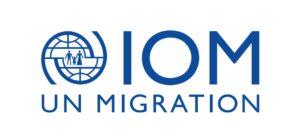
The Paradox of America: A Nation Built on Immigration Now Closing Its Doors
The United States of America has long prided itself on being a melting pot—a sanctuary for those seeking refuge from persecution, poverty, and conflict. From its inception, immigration has been the lifeblood of this nation, shaping its culture, economy, and identity. Yet, in recent years, particularly during the Trump administration, we have witnessed a troubling shift. The very country that once opened its arms to the world is now tightening its borders, raising profound questions about the values that underpin its foundation.
To understand this paradox, we must first acknowledge the historical context of immigration in America. The country was built by immigrants, from the Pilgrims who sought religious freedom to the waves of Irish, Italian, enslaved Africans and Asian migrants who contributed to the nation’s growth. This rich tapestry of cultures has not only defined American society but has also propelled its economic engine. Immigrants have been essential in filling labor shortages, driving innovation, and enriching the cultural landscape. Yet, the narrative has shifted dramatically, particularly in the face of political rhetoric that paints immigrants as threats rather than contributors.
The Trump administration’s approach to immigration has been characterized by fear and division. The controversial deportations of immigrants seeking refuge in the U.S. have raised ethical and legal concerns. It is indeed paradoxical that individuals fleeing poverty, violence and instability are met with hostility in a country that once offered them hope. The case of eight individuals from four countries stranded in Djibouti—a small nation grappling with its own challenges—highlights the absurdity of current immigration policies. Djibouti, with a population of just over one million, is already home to an estimated 250,000 immigrants, predominantly from neighboring Ethiopia. The influx of individuals seeking economic safety and a better life strains the resources of this small country, exacerbating existing social and economic issues.
The rationale behind deporting individuals to Djibouti, rather than to their countries of origin, raises critical questions about the legality and morality of such actions. American judges have deemed it illegal to deport individuals without due process, yet the administration continues to pursue these policies. It is essential to consider the implications of sending individuals to a country that is not their homeland. This practice not only undermines the rule of law but also places an unjust burden on nations like Djibouti, which are unable and ill-equipped to handle the influx of deported individuals.
The portrayal of immigrants as “dangerously criminal” is another aspect of this narrative that deserves scrutiny. While it is true that some individuals may have criminal backgrounds, the overwhelming majority of immigrants are law-abiding citizens seeking a better life. The generalization of all immigrants as criminals is not only misleading but also harmful. It fosters a climate of fear and suspicion, further alienating those who may contribute positively to the host society.
Moreover, the question arises: what constitutes a “dangerous criminal”? The criteria for determining who is deported often lacks transparency and can be influenced by bias and prejudice. This inconsistency raises ethical dilemmas about justice and fairness in the immigration system. It is crucial to remember that behind every statistic is a human being with a story—a narrative that deserves to be heard and understood.
As America grapples with its identity in the face of these changes, it is vital to reflect on the values that have long defined the nation. The principles of compassion, justice, and inclusivity should guide immigration policy, rather than fear and division. A nation built on the ideals of liberty and justice for all cannot afford to turn its back on those in need. Instead of closing its doors, America should seek to reaffirm its commitment to being a land of opportunity for everyone, regardless of their origins.
In conclusion, the current state of immigration policy in the United States presents a stark contrast to the nation’s founding ideals. As we witness the deportation of individuals to countries ill-equipped to support them, we must question the morality and legality of such actions. The narrative surrounding immigrants must shift from one of fear to one of understanding and compassion. Only then can America truly embody the principles upon which it was built—a nation that welcomes the weary and the hopeful, offering them a chance to contribute to the vibrant tapestry of society. It is time for America to remember its roots and embrace its role as a beacon of hope for those seeking refuge.




